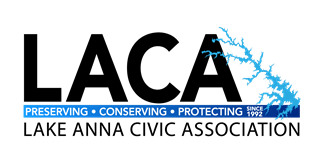By Mark Debord – June 2025
Lake Anna and the surrounding area are blessed with an abundance of plant life. While many of these are beautiful and provide a number of benefits, some are highly toxic. A full description of poisonous plants at the lake would take several articles. Here, we focus on three. The first, Water Hemlock, is one of the most toxic plants in North America. The other two, Pokeweed and Elderberry, produce berries that may be mistaken, especially by children, of other foods that are safe to eat. Each of these plants is native to Virginia and occurs throughout the Commonwealth, including here at Lake Anna.
Water Hemlock

As noted, Water Hemlock is one of the most toxic plants in North America. While it does not appear at first glance to be an attractive edible, some mistake it for other plants in the carrot family that have edible parts. However, all parts of the plant, especially the roots, are toxic. Ingesting the toxic plant can lead to seizures and even death in as little as 15 minutes.
Pokeweed

For those who have heard of “poke salad”, this is the origin of that term. Early spring shoots can be eaten, but only if prepared properly (I don’t recommend it). The rest of the plant can be toxic. Pokeweed blooms in Summer and produces a cluster of small berries that ripen in the Fall. Though these berries resemble grapes or blueberries, they are toxic to humans. Symptoms include nausea, convulsions, and other gastrointestinal issues.
Common Elderberry

Of the two types of Elderberry native to Virginia, Common Elderberry is the one we are more likely to see around Lake Anna. Common Elderberry produces small dark purple to almost black berries. All parts of the plant can be toxic, though the ripe berries can be eaten if cooked properly (know what you are doing before trying this). Elderberry plants are in bloom now and the berries will ripen in Summer.
For more information on these and other poisonous plants in Virginia, please see The Socrates Project, compiled by the Virginia Master Naturalist Program and the University of Virginia.
SOCRATES-PROJECT-Jan2021.pdf
mark.debord@lakeannavirginia.org
